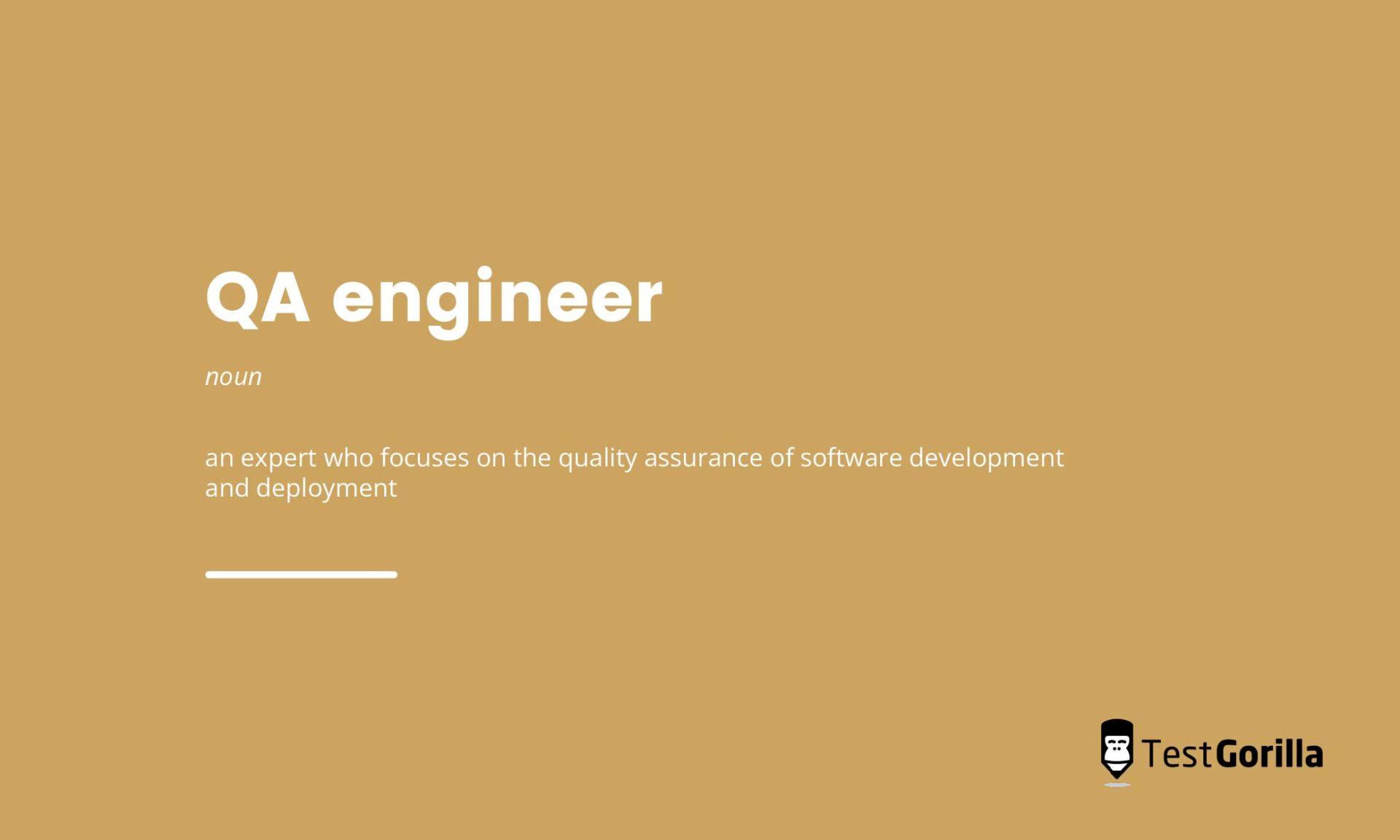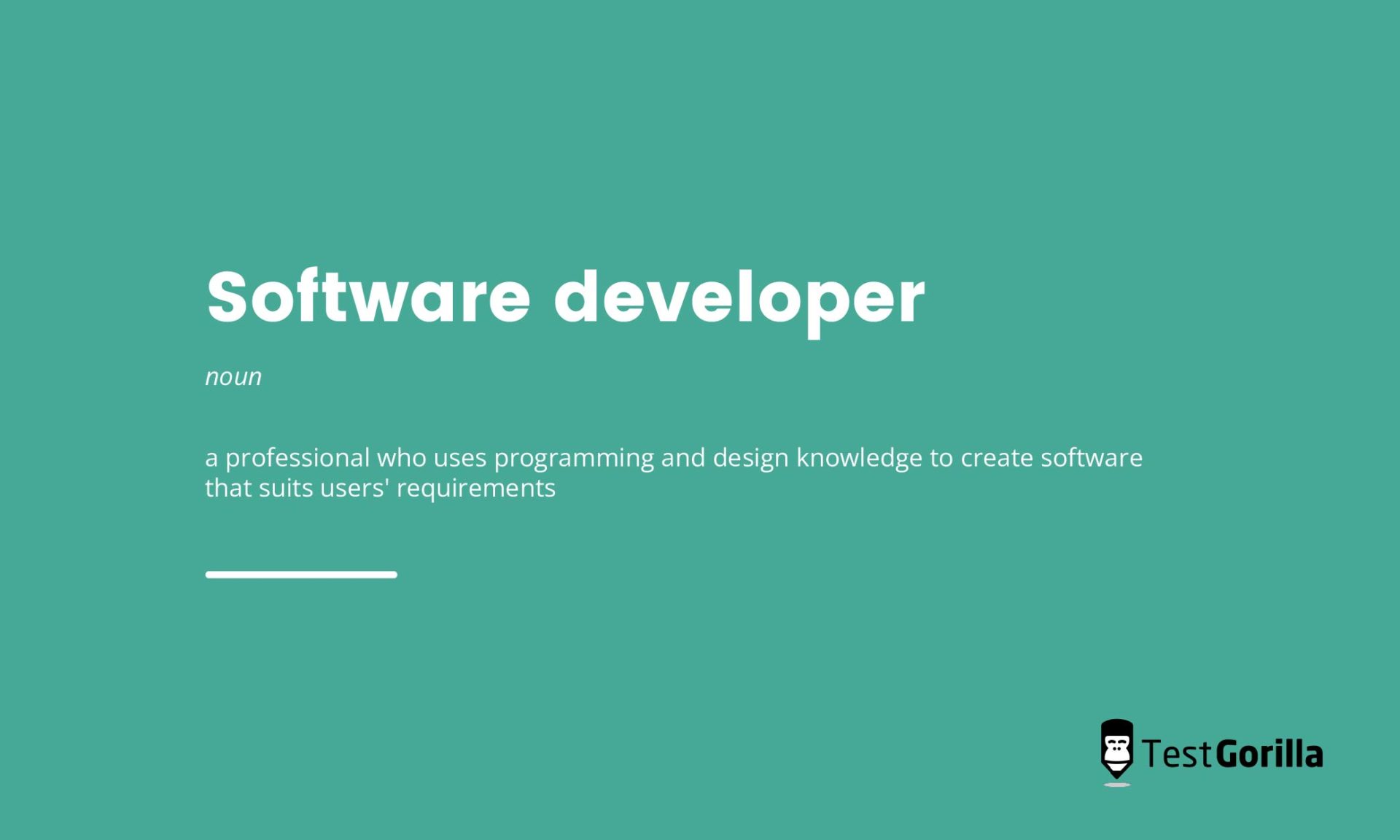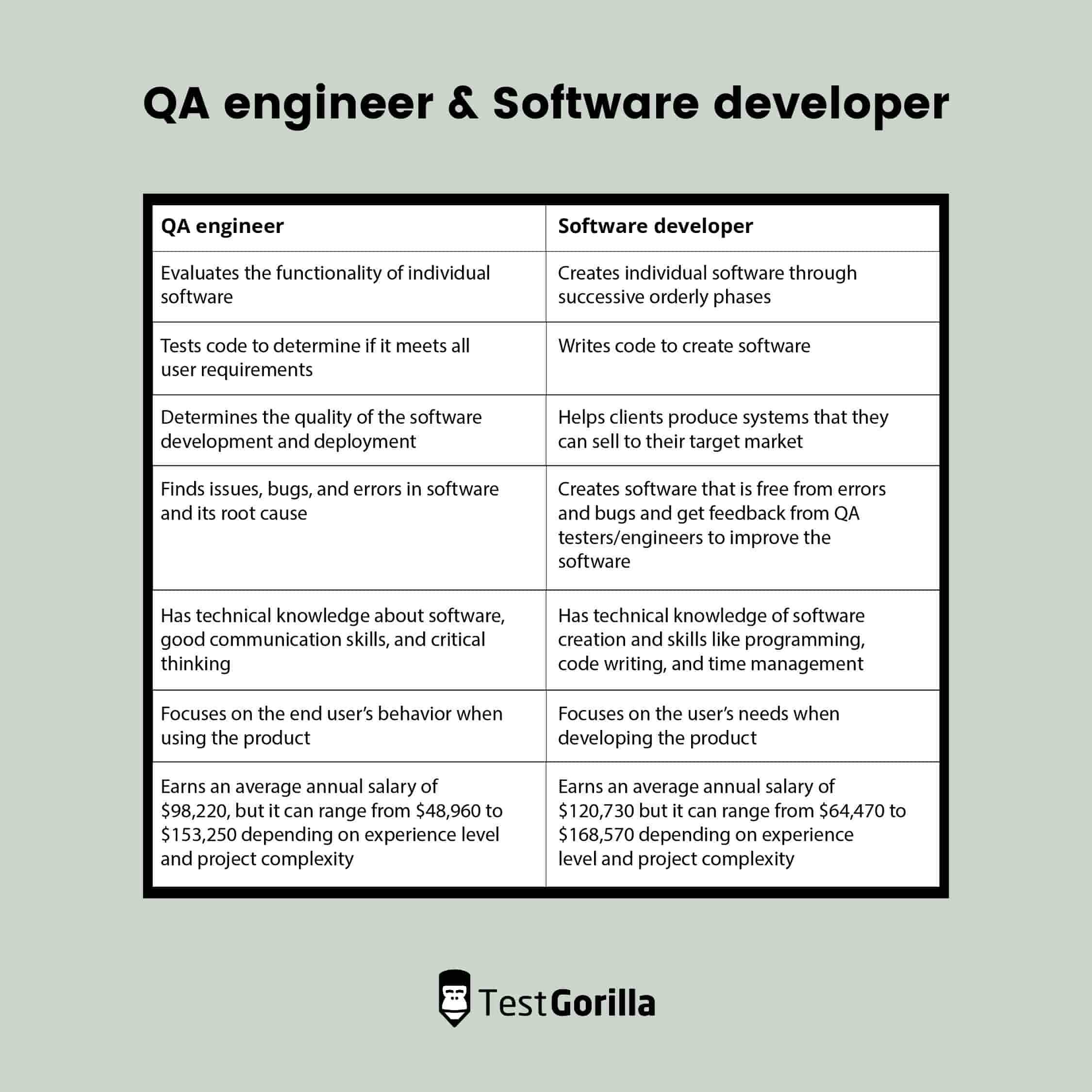QA engineers and software developers are instrumental in building any software.
Throughout the process, these professionals play critical roles in creating flawless and efficient programs before they are publicly available.
But it’s important to know what stage you are at in your software development process in order to determine whether you should hire a QA engineer or a software developer.
This article outlines the differences between these professions, enabling you to evaluate which would cater to your present need. As a bonus, we’ll show you the most effective way to test for a QA engineer during your recruitment process.
What is a QA engineer?
A QA engineer is an expert who focuses on the quality assurance of software development and deployment. Essentially, they perform manual and automated tests, mimicking a product’s end-users to ensure it fulfills its requirements.
QA engineers typically employ various skills, from automation and programming to logical thinking and mobile and web technology. They test for problems and bugs to prevent risks, reduce development costs, and improve a product’s performance.
What do QA engineers do?
Report significant findings to relevant managers and executives
Discover and analyze software defects or problems
Communicate with clients to understand their product needs
Give feedback and assist with software function and design
Review product/software requirements and develop test scenarios
Form a team to create effective testing systems
Create and design automated testing systems using computer code
What is a software developer?
A software developer is a professional who uses programming and design knowledge to create software that suits users’ requirements. They generally interact with clients to determine their needs, build new programs, and improve existing ones.
Typically, there are two types of software developers: applications software developers and systems software developers. The former creates specific consumer application software like games, and the latter builds system-level software like operating systems.
What do software developers do?
Write code for new software to meet clients’ needs
Access new and existing software systems
Recommend updates and upgrades for existing software
Develop operational manuals and systems specifications
Monitor and maintain the quality and performance of applications
Store document data for future reference
Provide reports on projects’ progress
The best insights on HR and recruitment, delivered to your inbox.
Biweekly updates. No spam. Unsubscribe any time.
QA engineer vs. software developer: What’s the difference?
Various factors, skills, and functions set these two professions apart. Understanding the differences will help you determine if you need a QA engineer or a software developer. Consider the table below.
Should you hire a QA engineer or a software developer?
This question depends on where you are in your development cycle.
Hiring a software developer is a fantastic option if you’re in the early programming stages of creating a working model.
However, you should consider hiring a QA engineer if you have a working model that requires testing for bugs and errors. The QA engineer is essential in evaluating the integrity of whatever product your software developer builds.
Why should you hire a QA engineer?
Your entire software development line should include various experts for specific purposes. That way, you can determine the quality of the end product. Essentially, a QA engineer would be best to ensure quality than your software developer.
The following reasons explain the significance of QA engineers and why you should hire them.
1. Harness their specialization
Even if you have experienced developers on your team, getting professional testers is still indispensable. They’ll generally be more skilled at identifying the problems in the software as that is their specialism.
2. Address problems promptly
Hiring a QA engineer/tester ensures you have a professional constantly assessing the process. This provides quality at every step of the production line and enables you to address challenges as they arise.
3. Get more than bug detection
QA engineers do more than bug detection as they also enhance the end user’s experience. They assess the design of the software, its responsiveness, and user-friendliness.
4. Gain a second perspective
Using their technical expertise, QA engineers can help you see how possible it is to meet your requirements and may also provide more effective ways to achieve them. You can rely on a professional second opinion to bolster your decisions and products.
How to test a QA engineer
After establishing the skills you should look for in a QA engineer, it’s essential to integrate pre-employment tests into your recruitment process. Pre-employment tests are a fantastic way to assess candidates’ skills before they reach the interview stage.
Thankfully, TestGorilla saves the day by providing this QA / Test Engineer test. It offers a stress-free process for testing your candidates according to the skills your organization is looking for while evaluating the value add to your business.
It also creates a bias-free environment for your hiring, as all candidates take the same QA skills test so that the results are objective.
Sign up today with TestGorilla and experience a smooth, stress-free, and efficient employment process.
You've scrolled this far
Why not try TestGorilla for free, and see what happens when you put skills first.

















